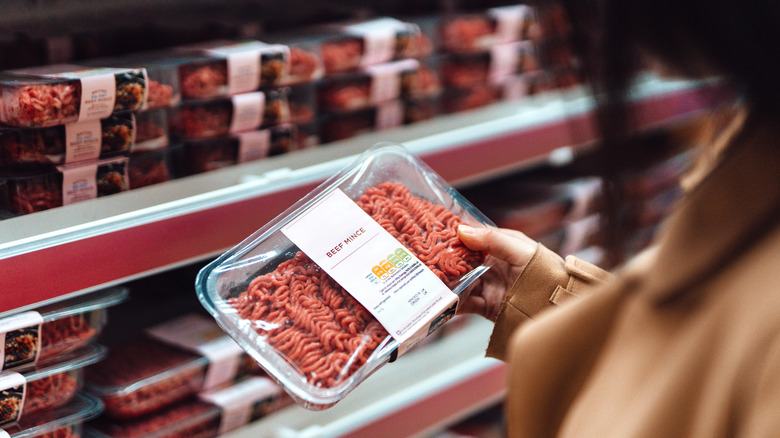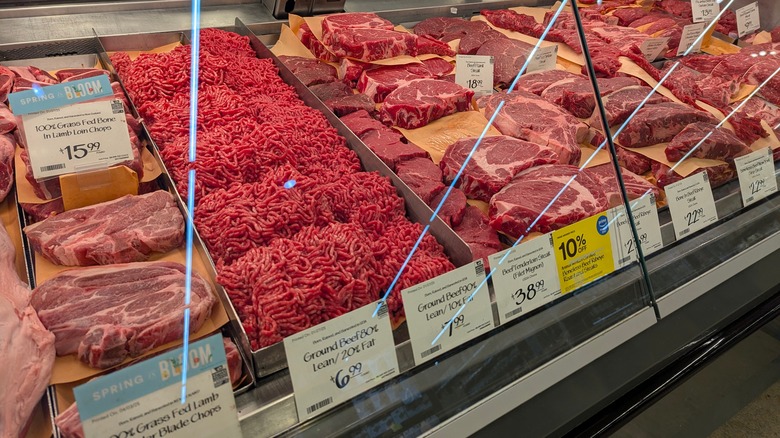Here's Exactly How To Tell If The Meat You're Buying Isn't Ethical
Consumers are increasingly aware of the origin and quality of the products they purchase, and this is especially true when it comes to what they eat. Among other growing trends in the food sector, the demand for ethically raised meat is rising as people prioritize sustainability, animal welfare, and their own health. However, with all the greenwashing that goes on in the industry, how can we know for certain that the meat we are buying is ethically raised and sourced? Tasting Table chatted with Jon Urbana, founder of KOW Steaks, who knows a thing or two about meat as the sixth generation of a farming and ranching family in Southwest Iowa.
There are many reasons to seek ethically-raised meats, from wanting a better quality of life for the animals to practices that respect the environment. And while both issues are larger than a single shopping trip and will always create debate, it's important that we, as consumers, add our little grain of salt to contribute. To start, Urbana says, "Watch out for overly commercial packaging, vague labels, and meat from major national chains."
While it is likely that the meat sold at the grocery store in which you shop was not produced at a local farm, you might still find good organic and grass-fed options from smaller farms that raise healthy animals that are treated with respect. "If it's mass-produced, it's probably not ethical," says Urbana. Shopping from a local butcher or a reputable grocery store such as Whole Foods is a good place to start. You can ask questions and see the meat directly at the counter, which often displays labels that include farm names and places of origin so that you can research to see how the animals were raised.
More tips for buying ethically produced meats
There are a few things to look for when buying ethical meat at the grocery store. For those who have the option, buying from a farm stand or farmers market will make a big difference, but when that isn't possible, Urbana has a few recommendations for pre-packaged grocery store meats. "Look for transparent labeling, local farm names, and third-party certifications," he says. "But even then, do your homework."
You can start by understanding the different terms that you will find on meat packaging. Meat labeling can be downright confusing, so it's crucial to know what these labels really mean. Third-party certifications such as American Humane Certification and Global Animal Partnership (GAP) are some of the more detailed and strict in the industry if you are interested in animal welfare. Look for 100% grass-fed or grass-fed and grass-finished beef for ethical options which are a more nutritious choice, as they are higher in omega-3 fatty acids and antioxidants.
In many cases, meat that comes from small producers will carry a higher cost, which is not always an option for families with a limited budget. However, when consuming meat, it's important to emphasize quality over quantity. Buying less meat of better quality is a budget-friendly and environmentally sound way to contribute and also cut back on meat consumption in general. Plus, ethically produced meat from small-scale farming has much better flavor and texture than mass-produced industrial meats. Stretching your meat purchases with plenty of vegetables in recipes like a stir-fry or casserole will do the trick. Whether you're looking for beef, pork, poultry, or fish, buying ethical and sustainable is a good practice all the way around.

